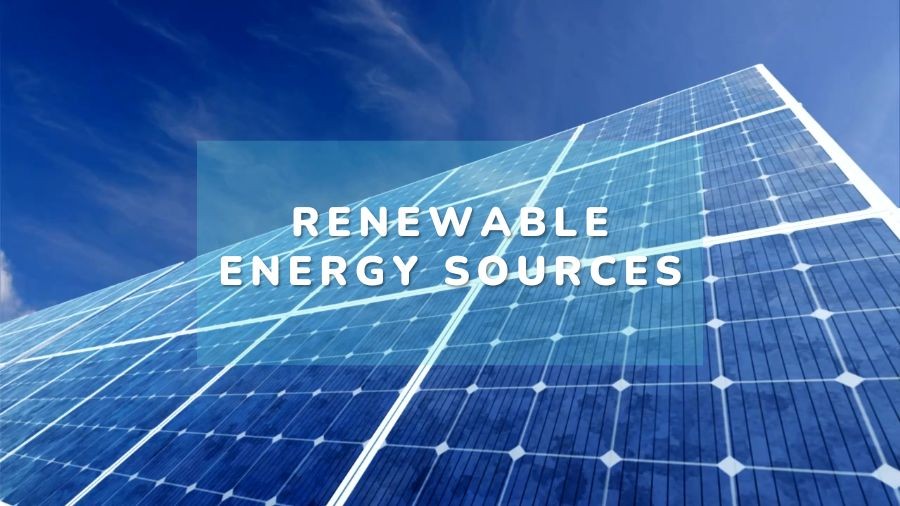Renewable Energy Sources Transforming Households and Industries

The shift towards renewable energy sources is reshaping the energy landscape. As concerns about climate change rise, households and industries increasingly embrace cleaner alternatives. The transition to renewable energy is not just an environmental necessity but also a practical solution that offers multiple benefits.
Solar energy has become one of the most popular renewable energy sources. It harnesses sunlight through photovoltaic panels. Homeowners who install solar panels can significantly reduce their energy bills. In many regions, government incentives make solar energy more accessible. These incentives can include tax credits and rebates, which sweeten the deal for families.
The advantages of solar energy extend beyond just financial savings. Solar energy systems can increase property values. Studies show that homes equipped with solar panels sell for
Wind energy is another promising renewable source. Many homeowners are beginning to see the benefits of wind energy for residential use. Small wind turbines can generate enough energy to power a home. These systems work best in areas with consistent wind patterns. Families can reduce their reliance on grid electricity. The energy generated can be used directly or stored for later use.
The environmental impact of wind energy is also significant. Unlike fossil fuels, wind energy produces no emissions during operation. This makes it an attractive choice for eco-conscious homeowners. Moreover, wind turbines can be installed in various settings, from rural to suburban areas. This flexibility allows more families to consider this energy source.
Biomass energy production methods represent another avenue for renewable energy. Biomass refers to organic materials like wood, crop waste, and animal manure. This method involves converting these materials into electricity or heat. Biomass can help reduce waste by repurposing materials that would otherwise end up in landfills. This process not only provides energy but also contributes to waste management.
One of the main benefits of biomass energy is its ability to produce a steady energy supply. Unlike solar or wind energy, which can be intermittent, biomass can provide a constant source of energy. This is especially useful during periods of high demand. Additionally, advancements in technology are making biomass systems more efficient and cleaner.
Energy conservation strategies for households play a crucial role in maximizing the benefits of renewable energy sources. Implementing simple changes can significantly reduce energy consumption. For instance, improving insulation and sealing leaks can lower heating and cooling costs. Families can also invest in energy-efficient appliances, which use less electricity and save money over time.
Smart home technologies offer further opportunities for energy conservation. These devices enable homeowners to monitor and control energy usage. Smart thermostats, for example, can adjust heating and cooling based on occupancy. This leads to significant savings on energy bills. Furthermore, energy management systems provide insights into usage patterns, allowing homeowners to identify areas for improvement.
The combination of renewable energy sources and energy conservation strategies creates a powerful synergy. By producing clean energy and consuming less, households can greatly reduce their carbon footprint. This is a critical step in addressing global climate change. As more people adopt these practices, the cumulative effect can lead to substantial environmental benefits.
The market for renewable energy sources continues to grow. Investments in solar, wind, and biomass are increasing. Governments worldwide are setting ambitious targets for renewable energy adoption. For instance, the European Union aims for at least 40% of its energy to come from renewable sources by 2030. This commitment reflects a global trend toward sustainability.
The private sector is also responding. Companies are increasingly investing in renewable energy projects. This not only enhances corporate social responsibility efforts but also makes financial sense. Many businesses are looking to reduce energy costs. Transitioning to renewable energy is a viable way to achieve this goal. In addition, businesses using renewable energy can promote their sustainability efforts, appealing to eco-conscious consumers.
Despite the benefits, challenges remain. The initial costs of installing renewable energy systems can be high. However, with financing options and incentives, these barriers are becoming less significant. Technological advancements continue to drive down costs. This makes renewable energy systems more accessible to a broader audience.
Public perception is another factor influencing the adoption of renewable energy sources. Awareness campaigns can educate communities about the benefits of solar, wind, and biomass energy. Understanding the long-term savings and environmental impact can encourage more families to make the switch. Schools and local organizations can play a vital role in this education process.
Additionally, collaboration among governments, businesses, and communities is essential. Supportive policies and regulations can create a conducive environment for renewable energy adoption. Public-private partnerships can lead to innovative solutions and financing models. Such initiatives can help communities transition to renewable energy sources more smoothly.
As technology advances, new renewable energy solutions continue to emerge. Innovations in solar technology, such as solar shingles, and improvements in wind turbine design are examples. These developments increase efficiency and adaptability. The future of renewable energy looks promising, with ongoing research and development efforts. The renewable energy market is expected to continue growing, creating new opportunities for investment and job creation.
The global demand for renewable energy sources is clear. As awareness of climate change and environmental sustainability increases, more individuals and businesses are taking action. The benefits of renewable energy sources, such as financial savings, environmental impact, and energy independence, make them an attractive option. Through ongoing education and supportive policies, the transition to renewable energy can become a reality for more households and industries.